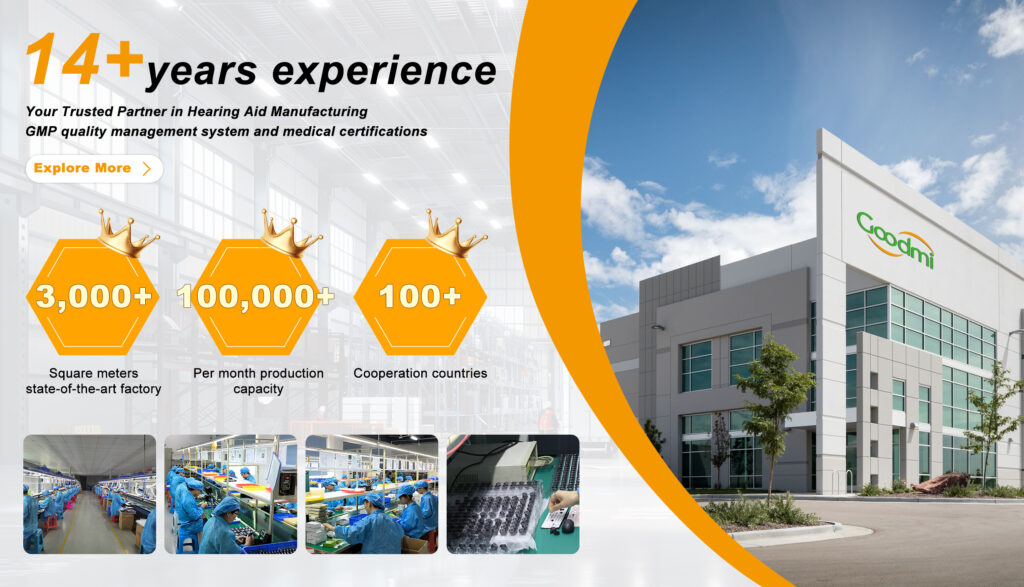Introduction
Many people tend to delay getting hearing aids, assuming the problem isn’t “serious enough.” But hearing loss, even in its early stages, can significantly affect our communication, health, and relationships. As someone who works closely with hearing professionals and clients, I’ve seen how early intervention makes a dramatic difference. Let me explain why sooner is better when it comes to hearing care.
Problem – Agitation – Solution (PAS formula)
Hearing loss often creeps up gradually. You might start missing words in conversations, turning up the TV louder, or feeling left out in group discussions. These small issues add up—causing frustration, loneliness, and even cognitive decline over time.
The longer you ignore it, the harder it becomes to treat. Your brain starts to forget how to interpret sounds. Social isolation grows. But there’s good news—early use of hearing aids can prevent these complications.
The solution is simple: act early. When you choose a hearing aid at the right time, you maintain your lifestyle, relationships, and brain health more effectively.
What are the benefits of choosing a hearing aid early?
Choosing a hearing aid early helps preserve brain function, improve communication, prevent social isolation, reduce fatigue, and maintain overall quality of life. Early use also improves long-term adaptation to hearing aids and reduces the risk of depression or cognitive decline.
If you’re wondering whether now is the right time to get a hearing aid, keep reading. The benefits of early adoption may surprise you.
Does hearing loss affect brain function over time?
Yes, untreated hearing loss doesn’t just impact the ears—it changes how my brain processes sound. Over time, the auditory cortex receives less stimulation, which weakens sound recognition skills.
I’ve learned that early hearing aid use helps us brain stay active and engaged. It supports auditory memory, speech understanding, and cognitive clarity. By acting early, you can keep your brain sharper for longer.
Can hearing aids prevent social withdrawal?
Absolutely. When you struggle to hear, you may avoid group events, restaurants, or even phone calls. These moments of withdrawal grow into long-term loneliness.
By choosing a hearing aid early, you will regain confidence in communication. You stay connected with family, friends, and coworkers. Social activity is vital for emotional well-being, and early hearing aid use plays a huge role in maintaining it.
How do hearing aids improve everyday communication?
Hearing aids amplify speech, filter out background noise, and enhance clarity. This makes conversations at home, work, and social settings more comfortable.
When you act early, you avoid unnecessary miscommunications or asking people to repeat themselves. This improves us relationships and boosts us self-esteem.
Can hearing aids reduce listening fatigue?
Yes. Straining to hear all day wears you out, even if you don’t realize it. Your brain works overtime to fill in the gaps during conversations, leading to mental exhaustion.
Early use of hearing aids reduces this fatigue. They make sounds clearer and more natural, allowing your brain to relax and focus on the content, not just the sound itself.
Are there long-term health risks to delaying hearing aid use?
Research shows untreated hearing loss increases the risk of depression, falls, and even dementia. It affects physical and mental well-being far beyond the ears.
By choosing a hearing aid early, you will lower these health risks. You feel more energetic, mentally alert, and emotionally balanced over the long term.
Choosing a hearing aid early is not just about hearing better—it’s about living better. It protects your brain, keeps you connected to the people you love, and supports your physical and emotional well-being.
Don’t wait until hearing loss disrupts your life. If you or your customers are considering hearing aids, we offer OEM/ODM support and expert guidance. Contact us today to request a quote or learn more about our advanced hearing solutions.




